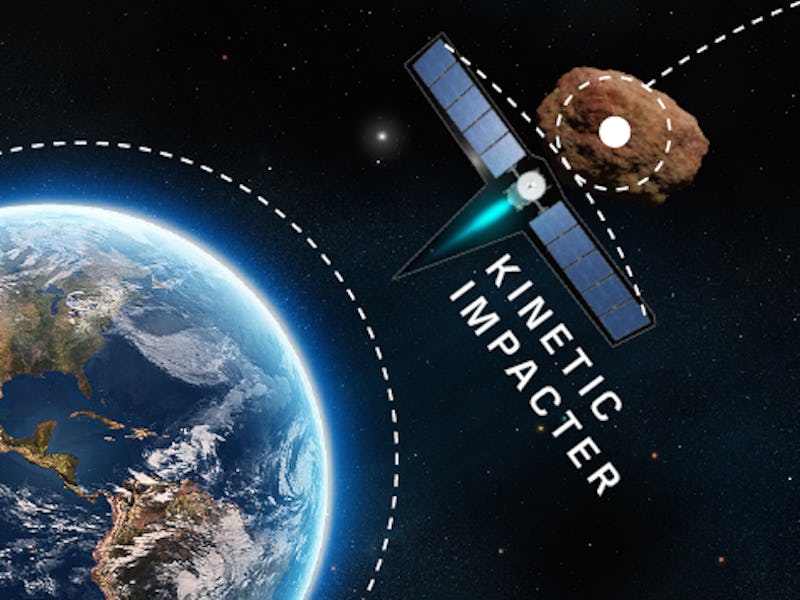World's Scientists Stoked to Crash a Probe Into an Asteroid

In the unlikely but nonetheless scary event that a large asteroid appears on a collision course with the Earth, our options are pretty limited. The most promising means of saving humanity is probably maneuvering an unmanned probe to crash into the asteroid itself, nudging it a few degrees off course so it safely zips by our planet. On Monday, more than 100 scientists published a letter at Berlin’s Museum für Naturkunde expressing their support for testing out such an intrepid solution.
The Asteroid Impact and Deflection Assessment mission (AIDA), which will explore the potential of these kinds of maneuvers, is already in the works for a 2020 launch, courtesy of the European Space Agency and NASA. The proposed ESA portion is called the Asteroid Impact Mission (AIM), designed to map an 800-meter-wide asteroid that will pass close to the Earth in 2022. European governmental officials will soon decide whether to green-light AIM, which is why so many space and planetary scientists have banded together to urge them to allow the mission to proceed.
“As citizens of our Solar System, we need to expand our body of knowledge of the Universe in which we live,” reads the letter, which any member of the public is welcome to sign as well.
The letter’s lead signatories are French planetary scientist Patrick Michel of the Observatoire de la Côte d’Azur (OCA), who is leading the European AIDA team; British astronomer Alan Fitzsimmons, whose research focuses on comets and asteroids; and Asteroid Day science advisor Debbie Lewis, whose research has focused on tracking and assessing the dangers of near-Earth objects.
And yes, you read that right — Asteroid Day is a real thing, founded by vocal asteroid-smashing advocate Brian May, who appears on the list attached with the enviable career description of “Queen Guitarist, Astrophysicist.”. American astronomer Carolyn Shoemaker, former record-holder for having discovered more comets than any other person on Earth, also appears on the list as an Asteroid Day/AIM proponent.
There are as many as 659 small asteroids that could potentially impact the planet over the next century, but none appear to be civilization-ending at this time. Still “kinetic impact” missions that develop our ability to knock asteroids off course and safely away from the Earth are vital not just for our hypothetical safety, but for better understanding planetary and asteroid physics. As the letter put it, a project like AIM is an “ideal test-bed for new technologies and the perfect stepping stone toward more complex deep space missions.”